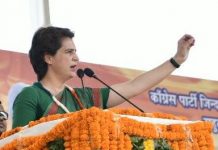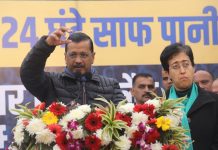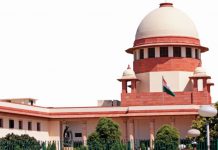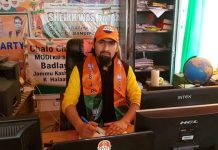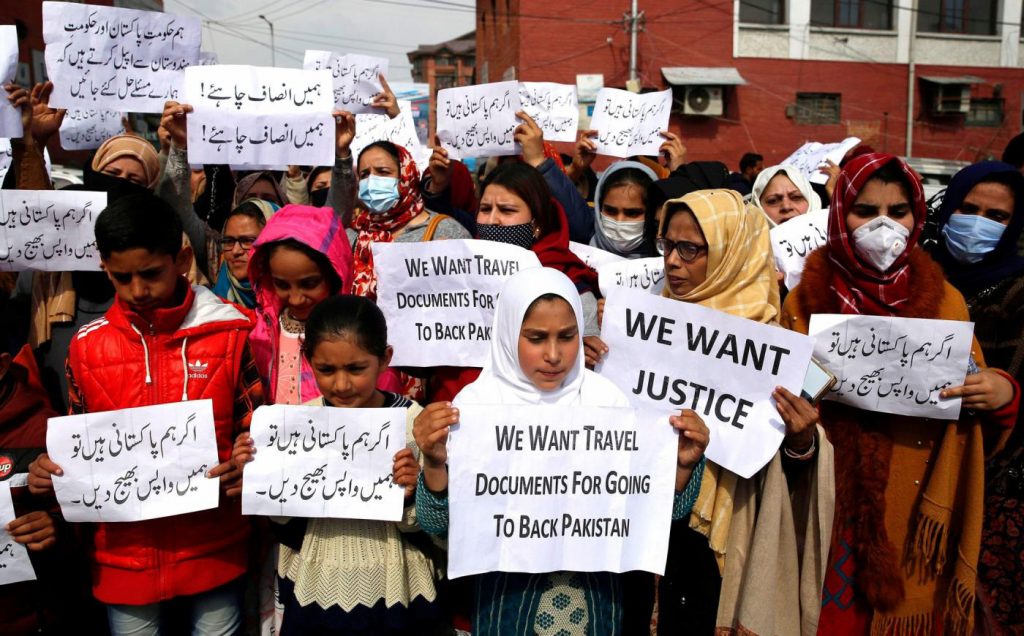
J-K administration’s decision to establish a high-powered panel with an objective of identifying foreign nationals who have been residing illegally or overstaying in the Union Territory since January 1, 2011 is worrying Pakistani-origin women married to Kashmiris. A report by Riyaz Wani
The Jammu and Kashmir government’s decision to establish a high-powered panel with the objective of identifying foreign nationals who have been residing illegally or overstaying in the Union Territory since January 1, 2011 is worrying Pakistani-origin women married to Kashmiris.
The panel’s primary responsibility is to compile a monthly report identifying foreign nationals who have gone missing within Jammu and Kashmir. These reports are to be submitted to the Ministry of Home Affairs by the 7th of each month.
There are nearly 350 women from Pakistan and Pakistan-occupied Kashmir, married to Kashmiri men. The women came to Kashmir in the years after 2010 as part of the rehabilitation policy announced by the then state government for the Kashmiri youth who had crossed over to Pakistan or PoK for arms training and wanted to return to a normal life in the state. These women are the wives of these former militants.
Around 450 youth had returned, many of them with their wives, under the rehabilitation policy. The state government had opened “channels” for them to return without arms and resume normal life. The government had selected four entry points – Poonch-Rawalakote (Poonch), Uri-Muzaffarabad (Uri), Wagah (Punjab) and Indira Gandhi International Airport, New Delhi from where the youth could enter J&K following necessary clearance. But after the BJP came to power at the centre in 2014, the plan was all but shelved. This, despite the fact, that the then Chief Minister Mehbooba Mufti who headed a coalition government with the BJP had suggested “legalising Nepal route” for those Kashmiri youths who had now shunned the path of violence and wished to return home.
The women have since not been recognized as bonafide citizens of India. What is more, in 2021, during the District Development Council polls, the government stopped the counting of votes from the constituencies where two of them were contesting and looked favourite to win. Somaya Sadaf was one of the two. Originally, a resident of Muzaffarabad in Pakistan occupied Kashmir (PoK), Sadaf came to Kashmir in 2010 after marrying a local militant from village Batargam in North Kashmir district of Kupwara who had crossed the Line of Control (LoC) for arms training in the nineties. A successful entrepreneur, she stood as an independent candidate in the District Development Council polls. Her symbol was laptop.
Similarly Shazia Aslam, who also hails from Muzaffarabad in PoK and is married to an ex-militant was contesting from Banyari in Hajin. Government’s reason for not counting their votes was that they are no legal residents of J&K. This despite the fact that the union government treats PoK as a part of India. In 1994, the parliament had passed a resolution to this effect.
Many of these women who are from PoK are therefore technically citizens of Jammu and Kashmir. India claims the entire J&K as their own, making people living in divided parts of the region legal citizens of either country.
The women now fear that they could be asked to leave J&K after being branded as foreigners. Since their arrival, the women have already been denied any legal documents, making them citizens of neither country. One reason for their statelessness is that the rehabilitation policy was essentially about the return of the former militants, it had no provision for their wives and children. But the problem with them is that the women and their children have now been living in Kashmir for over a decade now.
“What do we do now? We have houses, families and children. Deportation will uproot us,” said a PoK-origin woman on the condition of anonymity. “The tragedy is we are Indian citizens. We don’t belong anywhere else. And it is time we are recognized as such.”








